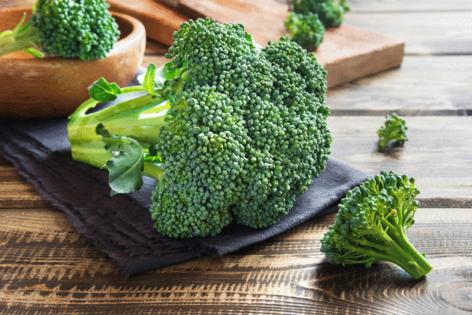On Nutrition: Brain boosters
Published in Nutrition
Call it brain freeze. These past weeks of painfully cold weather seemed to freeze my mind as well as my feet. I shouldn’t have complained. The frigid weather gave us time to get projects done in the house. But it also made me feel a bit grouchy…for no particular reason.
Once the weather warmed so my nose hairs didn’t freeze when I went outside, my husband gently asked if I’d like to go for a walk. Yes was not my first answer. But my mind was still working enough to remind me that this might be a good thing.
When we got back from taking the dogs down the road and back, my mood was lifted. And so, it seemed, was my brain fog.
Studies show that physical activity is actually a mental health exercise. I read one article that states just 15 minutes of walking, especially in the out-of-doors, can boost mood and reduce feelings of depression.
I seem to think more clearly after a brisk walk as well. It makes sense. As my heart pumps oxygen and nutrients to my working muscles, my brain gets the same benefits.
Are there foods that might help our brains stay focused? In 2015, scientists reported on a diet that was found to help slow the gradual decline in cognitive function we may experience as we age. It was a hybrid of the Mediterranean diet and the DASH diet (Dietary Approaches to Stop Hypertension) cutely named the MIND diet (Mediterranean-DASH Diet Intervention for Neurodegenerative Delay). Foods in this eating style are rich in nutrients and other substances believed to help protect the brain from unhealthy conditions called oxidative stress and inflammation.
Researchers from Rush University Medical Center and the Harvard Chan School of Public Health both reported that older people who most closely followed this eating plan for up to 10 years had the slowest rate of cognitive decline compared with those who did not follow this plan as closely. (A subsequent randomized controlled study in 2023 that followed older people for 3 years on the MIND diet found no significant changes in cognitive tests compared to controls. This has led some researchers to surmise that the longer we follow this pattern, the better.)
Here’s the general plan:
Daily: At least 3 servings of a whole grain, 1 or more servings of vegetables (emphasis on green leafies), no more than 1 tablespoon of butter. Olive oil as main added fat.
Weekly: At least 5 servings of nuts, 4 servings of beans, 2 servings of berries, 2 poultry meals and 1 fish meal. No more than 5 servings of pastries and sweets (per week, remember), 4 servings of beef, pork or lamb and 1 serving of cheese and fried food.
Take it easy on alcohol. A moderate intake (no more than 1 drink a day for women and 2 drinks a day for men) may help protect against mental decline, but excessive alcohol consumption is linked to early onset dementia, according to a 2023 research article in the Journal of the American Medical Association.
©2024 MediaNews Group, Inc. Distributed by Tribune Content Agency, LLC.







Comments